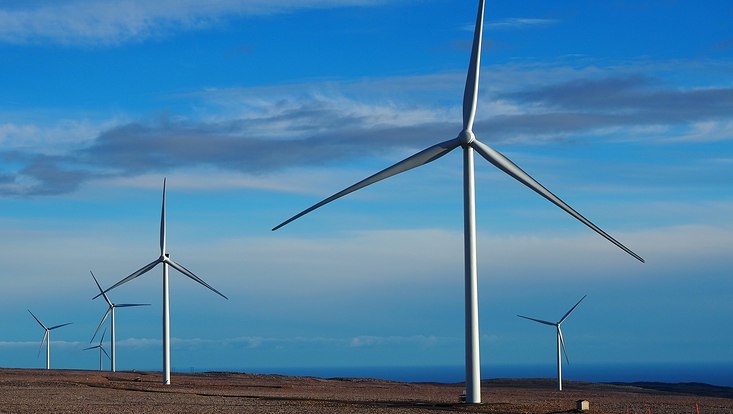Society Research
Interim Report of the CSS Working Group "The EUropean Dimension of Green Transformations"
21 November 2024, by CSS

Photo: Sebastian Pichler via unsplash
The working group aims to address the economic, political and social dimensions of the European EGD from an economic, sociological and political science perspective. Its focus is on the European dimension of an NZT and the related social consequences. In addition, NZT efforts in the EU member states will be examined from a comparative perspective. In doing so, different methods of data collection and analysis will be combined (e.g. qualitative case studies, econometric approaches). A special focus in the working group lies on interdisciplinary research.
Were the objectives of the working group achieved or have the objectives changed during the funding period?
The objectives have been fully met. The members of the working group have collaborated in joint project proposals and papers and have pursued individual project and publication activities within the working group’s objectives. The following outcomes can be reported:
- Four third-party funded projects have been granted; two of which are collaborative efforts of two members of the working group within the larger context of a DFG Research Unit.
- Five journal articles have been published or are under review/revision; one of which is a joint effort by two working group members:
Cremer, Julia (2024): Collective actors and potential alliances for eco-social policies in Germany. In: Zeitschrift für Politikwissenschaft; ZPol, Vol 43:183 – 206.
Flörchinger, D., Perino, G., Frondel, M. & Jarke-Neuert, J. (2024) The Impact of Information Provision on Revealed-Preference Support for Climate Policies Perino, Grischa (2024): Carbon Market Design and Market Sentiment. Journal of Environmental Economics and Management, 128, 103057.
Zimmermann, Katharina; Mandelli, Matteo; Gerstenberg, Anne (2024): Eco-social policies in a multilevel setup: from Brussels to Berlin. In: Zeitschrift für Politikwissenschaft, Vol 43: 255 – 271.
Zimmermann, Katharina 82023): ‘Varieties of green transitions’? Comparative welfare state research and the social dimension of green transitions. In: European Political Science, Vol 23: 56 – 69.
- Two papers have been presented at scientific conferences and/or are in the process of being published as working papers:
Perino, G., Jarke-Neuert, J., Flörchinger, D. & Frondel, M. (2024) Public Signals and Voting: Evidence from a consequential online Experiment on Climate Policy. Presented at the Annual Meeting of the European Association of Environmental and Resource Economists in Leuven by Grischa Perino; The working paper is expected to be published in autumn this year.
Anne Gerstenberg, Grischa Perino, Kai-Uwe Schnapp and Johannes Jarke-Neuert (Forschungszentrum Jülich) are preparing a mix-method paper on instrument preferences of policy makers.
What is the significance of the interim results of the Working Group for research in this field?
The interim results of the Working Group's research provide significant insights into the evolving dynamics of eco-social policy formulation within the framework of the European Green Deal (EGD), particularly in the context of Germany. By empirically assessing voters' and policymakers' preferences through survey-based randomized controlled trials and expert interviews, the research highlights the strategic and context-dependent nature of public support for climate policy instruments. German voters show a preference for tangible measures like coal phase-outs but adjust their support based on expert evaluations and perceived broader effectiveness, such as tightening the cap in the EU ETS.
This aligns with findings from the ‘usages of Europe’ framework, which reveal that stakeholders in Germany utilize the EGD as a flexible, ideologically contested tool rather than a prescriptive policy framework. The research underscores that debates within Germany focus more on selecting specific instruments rather than questioning the need for eco-social policies themselves. This minimal conflictual politicization highlights the pragmatic approach to integrating European-level initiatives with domestic priorities.
These findings are significant as they deepen our understanding of the multilevel governance processes and the socio-political dynamics that shape climate policy. They demonstrate how European frameworks like the EGD influence national debates, not by imposing rigid policies, but by offering a platform for negotiation and strategic alignment of eco-social objectives.
As outlined below, the granted projects will continue to investigate these dimensions of the European Dimension of green transformations
What is the significance of the interim results for the sustainable development of society?
The interim results of the Working Group's research are crucial for advancing the sustainable development of society by demonstrating how public preferences, expert input, and governance frameworks interact to shape climate policy. The study shows that public support for climate measures, such as coal phase-outs or EU ETS adjustments, is strategic and responsive to expert advice, promoting policies that balance effectiveness with democratic legitimacy.
Additionally, the research highlights the EGD’s role as a flexible tool for integrating ecological and social objectives, addressing the social risks of the green transition. It underscores the importance of multilevel governance in aligning EU and national policies, fostering coherent and inclusive sustainability efforts. By minimizing politicization around eco-social policies, the findings support stable, long-term strategies essential for sustainable development.
What turned out to be particularly exciting findings?
Policy makers have been found to be able to predict climate policy instrument preferences of voters even when they did not concur with their own. Voters’ support for policy instruments differed when they participated in a vote from what they chose when they could determine the outcome themselves. This provided evidence that voting is strategic.
What is the future of the working group? Was it possible to carry out or prepare third-party funded research within the framework of the working group?
Several third-party funded projects have been prepared, submitted and granted during the course of the working group. Projects “The European Green Deal as a game changer? Domestic institutionalisation processes of a green transition in Europe” (GreenDeal) led by Katharina Zimmermann and “Believing in a Net Zero Society” (BeNetZero) led by Grischa Perino have both been approved as part of the DFG Research Unit (Forschungsgruppe) “Big Structural Change” and are expected to start on 1st Jan. 2025. They form the climate change component of the research unit and will work closely together. There are also synergies with work package 3 of project B2 “Climate Governance” of CLICCS where Anne Gerstenberg and Grischa Perino are working together.
Furthermore, Katharina Zimmermann has been granted the international collaborative project “Green Transition Attitudes: Social Risks and Deservingness in the context of Climate Change”, in which citizens’ attitudes and preferences vis-à-vis green transformation projects – which are strongly driven by the European Green Deal – are studied in Germany, Belgium and Slovenia. The project is funded in the WEAVE-context; the German sub-projects are funded by the DFG. The project started in June 2024.
In addition, Katharina Zimmermann recently received news that her collaborative initiative “Welfare State Responses to Social Risks in Times of Climate Change” (WELRISCC) will receive funding in the NORFACE/CHANCE funding line; also with the German sub-projects being funded by the DFG. Katharina Zimmermann leads the entire initiative, in which six European project partners and nine further cooperation partners investigate across Europe, how welfare states react to new social risks relating to climate change and its mitigation and adaptation. The project will start in spring 2025.
You can find out more about the Working Group here.


